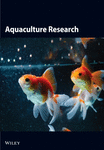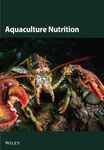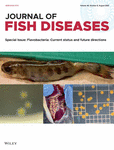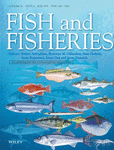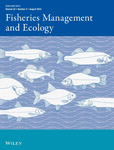Journal list menu
Export Citations
Download PDFs
Articles
Sinoatrial Contracaeciasis in Johnny Darters (Etheostoma nigrum) and Plains Topminnow (Fundulus sciadicus) From the South Platte Drainage, Colorado
- First Published: 23 July 2025
Parasites of Farmed and Wild Tilapine Fishes From Selected Farms and Lake Jipe in Taita Taveta County, Kenya
- First Published: 02 February 2025
Proliferative Kidney Disease in Sympatric Naturally Reproducing Populations of Rainbow and Brown Trout in Southern Peri-Alpine Germany
- First Published: 15 January 2025
Saprolegniosis in aquaculture and how to control it?
- First Published: 18 July 2024
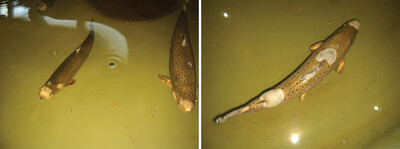
This review combines the current knowledge regarding the predisposing factors to Saprolegnia infections and current methods to prevent and treat it, including those under further research. So far, many compounds have been tested and studied, but an effective, suitable and safe compound to treat saprolegniosis remains to be found.
Infectivity of an emerging fish parasite Gyrodactylus sprostonae in juvenile carp (Cyprinus carpio)
- First Published: 28 May 2024
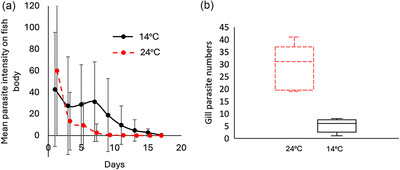
The infectivity of an emerging monogenean gill disease, Gyrodactylus sprostonae, was investigated in juvenile common carp for the first time. Results indicated that infected adult carp were able to successfully infect juvenile carp with G. sprostonae and temperature had a significant impact on infection durations and burdens. However, all juvenile carp cleared their infections and displayed no morbidity associated with this emerging monogenean infection.





